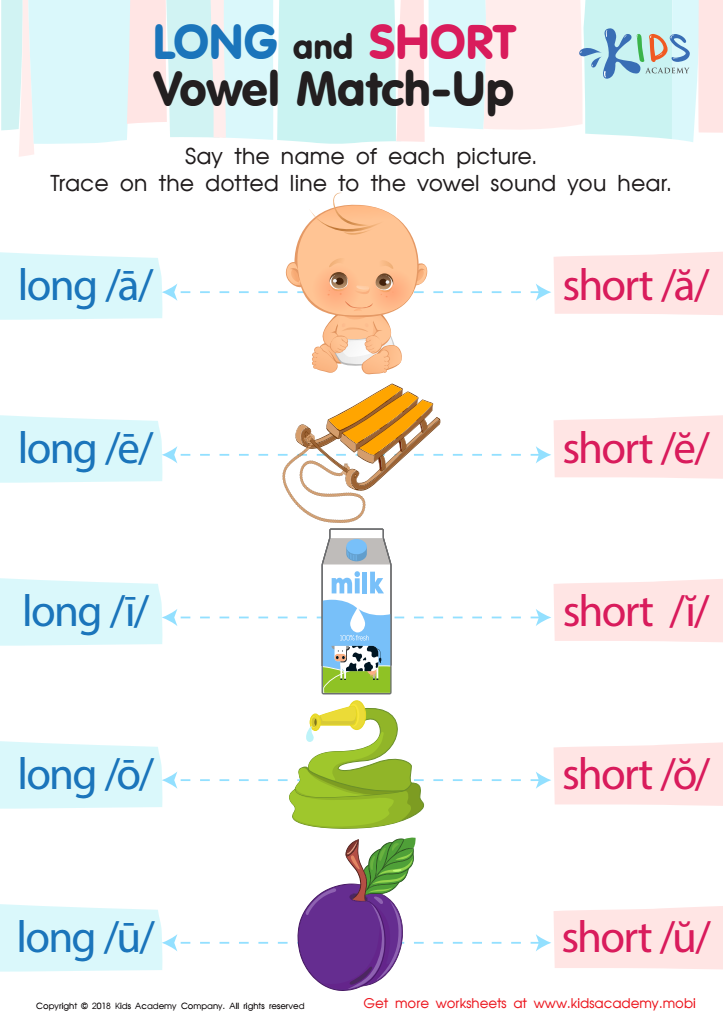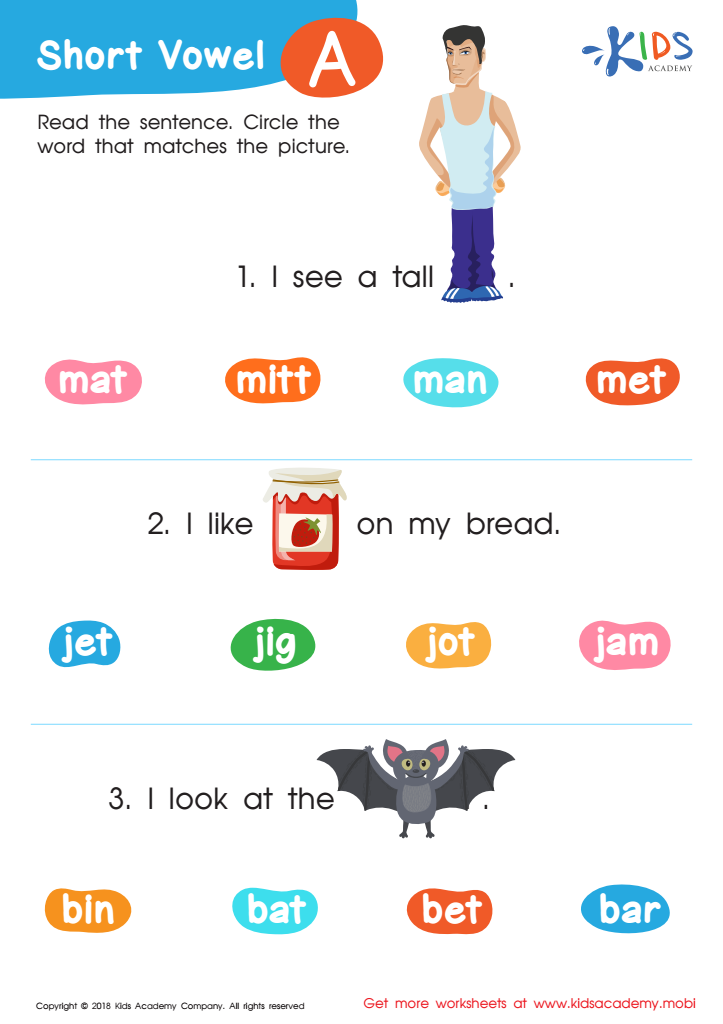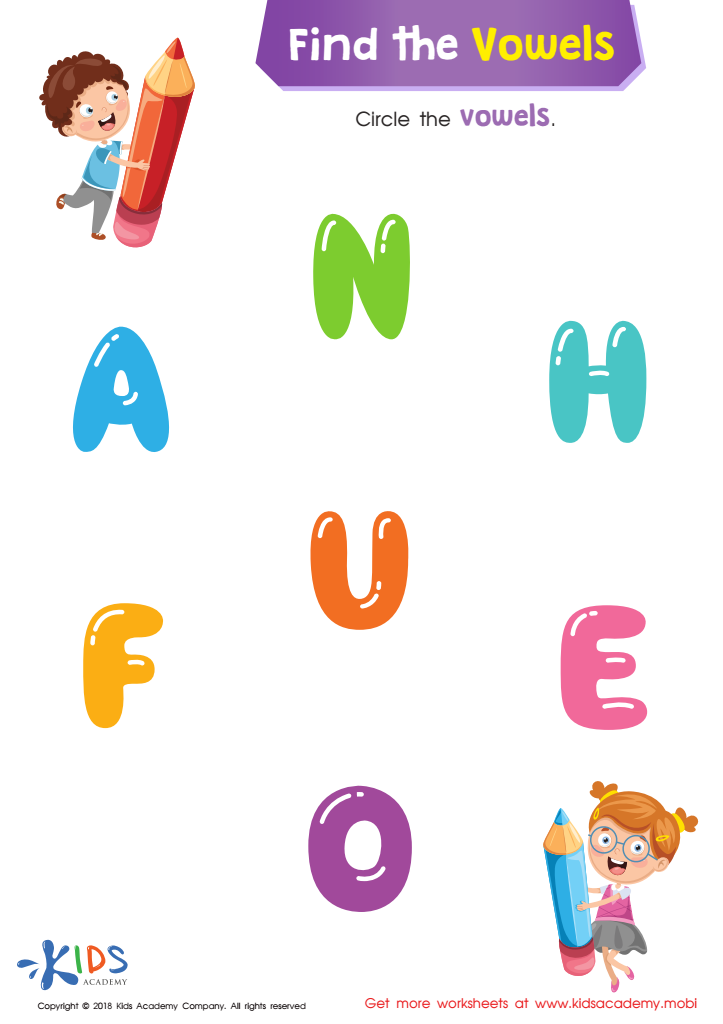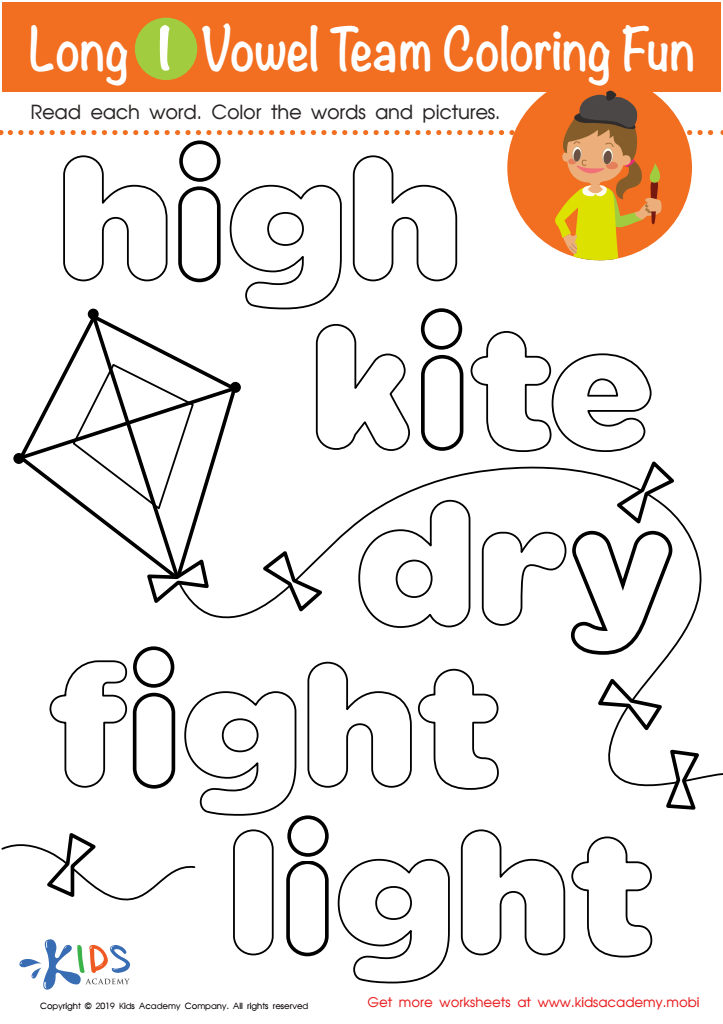Vowel Recognition Normal Phonics Worksheets for Ages 4-6
9 filtered results
-
From - To
Introducing our Vowel Recognition Normal Phonics Worksheets for Ages 4-6, designed to enhance early literacy skills in a fun and engaging way. These worksheets focus on identifying and recognizing vowels, a crucial foundation for reading and writing. With colorful illustrations and age-appropriate activities, young learners will enjoy sorting, matching, and practicing vowel sounds. Our interactive approach encourages children to develop phonemic awareness and boost their confidence in language skills. Suitable for home or classroom use, these worksheets provide a valuable resource for parents and educators aiming to foster literacy success. Explore our collection and watch your child's reading skills flourish!


Long and Short Vowel Match up Reading Worksheet


Let's Check Long Vowels: Assessment Worksheet


Short Vowel /a/ Worksheet


Short Vowels /e/, /i/, and /u/ Worksheet


Long Vowel Maze /o/ and /i/ Worksheet


Short Vowel Eggs Worksheet


Find the Vowels Reading Worksheet


Long I Vowel Team Coloring Worksheet


Long and Short Vowel Sentences: Assessment Worksheet
Vowel recognition and phonics are essential components of early literacy development for children aged 4-6. At this formative stage, children begin to decode words, making sense of the sounds letters make, particularly vowels, which can significantly influence their ability to read and write. Understanding vowels helps children grasp the core building blocks of language, as they are pivotal in forming syllables and words.
Parents and teachers should prioritize phonics programs that emphasize vowel recognition, as a strong foundation in this area improves reading fluency and comprehension. Mastery of vowel sounds allows children to break down simpler words into their phonetic components, fostering confidence and encouraging a love for reading.
Moreover, recognizing the relationship between letters and sounds augments vocabulary development, providing children with the tools needed to express themselves effectively. This foundational skill might also mitigate future reading difficulties, setting children on a path to academic success. Ultimately, investing in effective phonics instruction not only empowers young learners but also equips them with vital communication skills for their educational journey and beyond. By recognizing the significance of this early learning phase, both parents and educators can play a pivotal role in nurturing lifelong readers.
 Assign to My Students
Assign to My Students




















